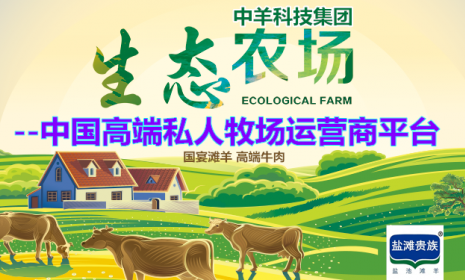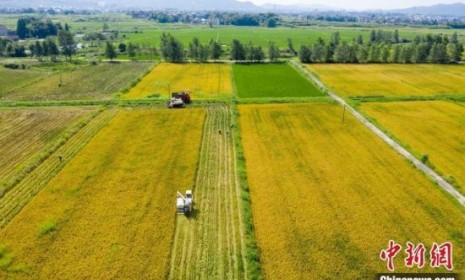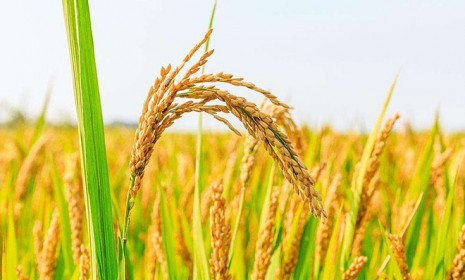近日,华中农业大学果蔬园艺作物种质创新与利用全国重点实验室邓秀新院士团队在The Plant Cell 杂志在线发表题为“Jasmonate Activates a CsMPK6-CsMYC2 Module that Regulates the expression of β-citraurin Biosynthetic Genes and Fruit Coloration in Orange (Citrus sinensis)”的研究论文。该研究揭示了茉莉酸通过激活CsMPK6-CsMYC2模块调控柑橘果皮着色的分子机制。
红皮柑橘因果实外观色泽明亮艳丽广受消费者青睐。实践中,红皮柑橘果实采收时常因果皮着色不均匀或转红不充分,导致果实外观品质降低,商品价值大打折扣,该问题在早熟红皮柑橘品种及栽培环境欠佳的地区尤为突出。类胡萝卜素(carotenoids)是一类影响柑橘果皮色泽的主要天然色素,课题组前期研究证实橙红色的类胡萝卜素β-柠乌素(β-citraurin)是‘纽荷尔’脐橙等红皮柑橘品种果皮中积累的主要特征色素,CCD4b是β-柠乌素合成途径关键基因(Zheng et al., 2019)。目前柑橘中β-柠乌素生物合成调控的研究较少,因此研究β-柠乌素生物合成的调控机制可为解决因品种或栽培条件不佳等因素导致的柑橘果实着色差问题提供解决方案。
研究发现在果实发育与成熟过程中,茉莉酸(JA)、茉莉酸-异亮氨酸结合物(JA-Ile)含量变化与β-柠乌素的积累模式相同。外源茉莉酸甲酯(MeJA)处理‘纽荷尔’脐橙果实显著促进果皮内源JA及JA-Ile生成,促进柑橘果皮着色。JA信号途径核心转录因子CsMYC2受MeJA处理诱导,并结合β-柠乌素合成途径关键基因CsCCD4b等基因启动子,正调控相关基因表达以促进β-柠乌素合成与积累。同时CsMYC2激活磷酸激酶CsMPK6表达。CsMPK6与CsMYC2蛋白水平互作,一方面降低CsMYC2对其下游基因启动子的结合活性,另一方面磷酸化CsMYC2促进其蛋白降解。这一负反馈调节机制精准调控柑橘对JA的响应,有效避免了果实对JA的过度响应。综上,该研究揭示了植物激素茉莉酸通过激活CsMPK6-CsMYC2模块促进β-柠乌素积累及柑橘果皮着色的分子机制,为柑橘果实色泽品质的形成与改良提供理论和实践基础。
果蔬园艺作物种质创新与利用全国重点实验室邓秀新院士课题组博士后岳鹏涛为论文第一作者,邓秀新院士为通讯作者。团队成员柴利军教授,叶俊丽副研究员,谢宗周高级工程师参与了研究。华中农业大学Robert Larkin教授为论文提供建议。课题组研究生蒋政华、孙权(现山东农业大学博士后)、魏冉冉、尹映紫也参与该研究。相关工作得到国家自然科学基金和中国博士后科学基金的资助。
【英文摘要】
Carotenoids are natural pigments that influence the color of citrus fruit. The red-colored carotenoid β-citraurin is responsible for the peel color in 'Newhall' orange (Citrus sinensis)。 Although jasmonates are known to regulate the biosynthesis and accumulation of carotenoids, their effects on β-citraurin biosynthesis in citrus fruit remain unclear. Here, we determined that treatment with methyl jasmonate (MeJA) significantly promotes fruit coloration and β-citraurin production in 'Newhall' orange. A MeJA treatment induced the expression of CsMYC2, which encodes a transcription factor that serves as a master regulator of jasmonate responses. CsMYC2 bound the promoter of the gene that encodes carotenoid cleavage dioxygenase 4b (CsCCD4b), the key gene for β-citraurin biosynthesis, and the promoters of genes that encode phytoene synthase (CsPSY), lycopene β-cyclase (CsLCYb), and β-carotene hydroxylase (CsBCH) and induced their expression. In addition, CsMYC2 promoted CsMPK6 expression. Notably, we found that CsMPK6 interacted with CsMYC2 and that this interaction decreased the stability and DNA-binding activity of CsMYC2. Thus, we conclude that negative feedback regulation attenuates JA signaling during the jasmonate-induced coloration of citrus fruit. Together, our findings indicate that jasmonates induce β-citraurin biosynthesis in citrus by activating a CsMPK6-CsMYC2 cascade, thereby affecting fruit coloration.
论文链接:https://academic.oup.com/plcell/advance-article/doi/10.1093/plcell/koac363/6931829?searchresult=1
日期:2023-01-29


















